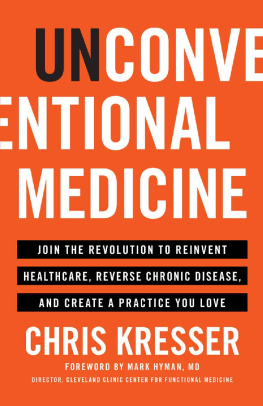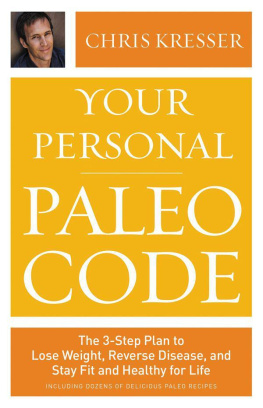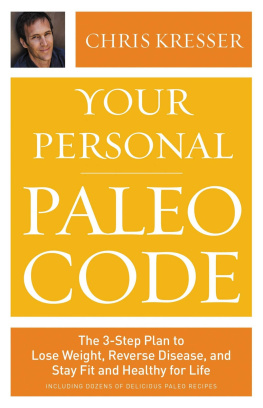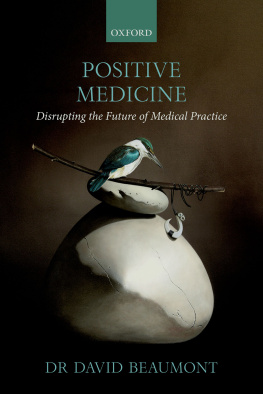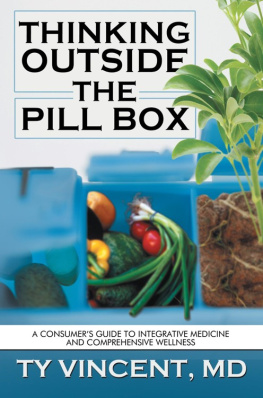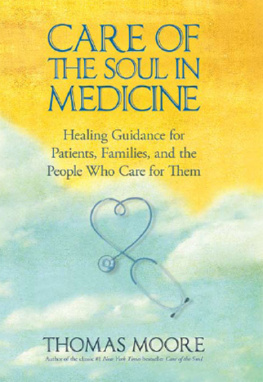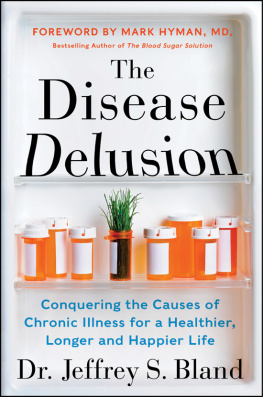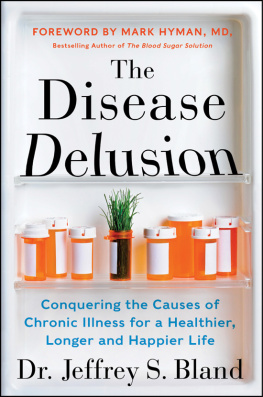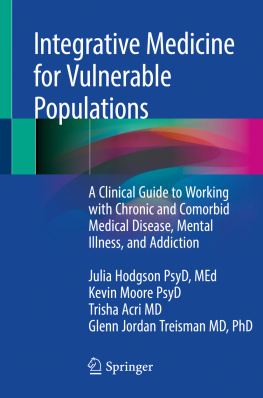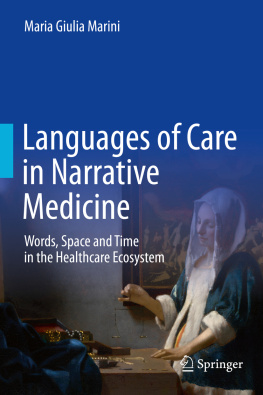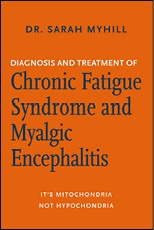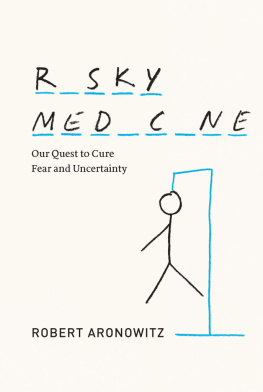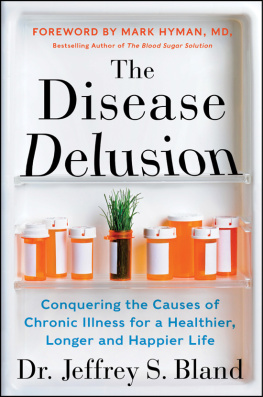All rights reserved.
Foreword
By Mark Hyman, MD
So, what is disease? In old times people used to think that a disease was some actual entity or thing which had got into the body in some way, and was there lying hidden and secreted, and was to be cast out. This idea, which we now know to be true only in a few specific instances, was at one time general. The conclusion is that all disease is disordered function. Here, then, I say, is the highest justification for all treatment being based upon the principle of restoring disordered functions to order, and this is what I have ventured to term Functional Medicine.
Willoughby F. Wade, BA, MB,
Physician to the General Hospital, Birmingham, England
Delivered as a Clinical Lecture on Functional Medicine, March 5, 1870
Published in the July 1, 1871 issue of The Lancet
When I graduated from medical school I believed I had the keys to the kingdom, that I knew everything there was to know about medicine and healing. If I didnt learn it in medical school, it was either not scientific or worse, harmful. I believed I could help all my patients by applying what I learned. And yes, I could help people with acute illness, but the bulk of my country family practice patients had chronic illnesses that were mostly preventable and reversible. I felt like I was working for Pharma.
Then I became ill with chronic fatigue syndrome, and medicine provided no answers. It was only when I listened to Dr. Jeffrey Bland that I realized there was a different way of thinking about disease, a different paradigm based on understanding the body as an integrated system, a model based on analysis of root causes of disease. I said to myself, Either this man is crazy, or what he is saying is true. And if it is true, then I owe it to myself and my patients to explore the model. I did and cured myself of mercury toxicity that resulted from living in China.
I began using the model on my patients, with often extraordinary results. Twenty years later and tens of thousands of patients later, I know this is the future of medicineboth from a scientific perspective and to help physicians become re - enchanted with medicine. Now, I run Cleveland Clinic Center for Functional Medicine with over fifty employees in a 17,000- square - foot space in the epicenter of Cleveland Clinic. We are doing research and education, as well as community - and group - based programs.
Many of you may be disillusioned with traditional medical practice and may be curious about Functional Medicineone of the approaches that Chris will be discussing at length in this book.
Functional Medicine is a comprehensive theoretical framework for medicine that incorporates a modern understanding of the body as a complex adaptive system, an integrated biological ecosystem, an interdependent, web - like network of biological functions. It provides a new set of lenses through which to interpret and organize complex biological and social information so that we understand much better why we get sick and how we heal. Functional Medicine guides the clinician to a more comprehensive view of the whole organism, not just organsthe whole system, not just the symptoms.
Functional Medicine also provides a practical clinical framework for how the bodys physiologic systems are linked together and how their functions are influenced by both environment (diet, lifestyle, microbes, allergens, environmental toxins, and stresses) and genetics (Loscalzo et al. 2007). Applied in practice, it can more effectively prevent, treat, and often cure chronic conditions, at lower cost, through a new way of seeing disease based on underlying causes, and by developing treatment models that can restore balance within dysfunctional biological systems and networks.
A classic patient story highlights the failure of our current model and the power of Functional Medicine to solve complex chronic illness. At fifty - seven , the patient described himself as in general good health and was eager to climb Kilimanjaro. He took fifteen different medications for his colitis, asthma, alopecia areata (total hair loss), and hypertension. He was well treated by an internist, gastroenterologist, pulmonologist, and dermatologist, all of whom made the correct diagnosis for each discrete disease based on symptoms (not causes) and provided the appropriate medications for the symptoms or diagnosis. All of his diseases were inflammatory in nature, but no physician had investigated the underlying cause of the systemic inflammation that was manifesting in so many ways. Clearly, knowing the names for all his diseases did not help him get better or provide a path to understanding the root causes.
A Functional Medicine work - up that looked at common underlying pathways of disease and dysfunction revealed that each of this patients diagnoses could be explained by the inflammation caused by something he was eatinggluten. Tests confirmed the diagnosis of celiac disease, which had been missed for more than forty years. Within six months, he was off most of his medications, had lost twenty - five pounds, his blood pressure had improved, he had no more asthma symptoms, he had normal bowel movements, and his hair was growing back. A review in the New England Journal of Medicine (Farrell 2002) cataloged the myriad diseases that can be caused by celiac disease, from anemia to osteoporosis, from autoimmune diseases to thyroid dysfunction, from schizophrenia to psoriasis. Because each of these conditions may be triggered by multiple factors, not just eating gluten, consideration of him as a unique individual was critical. His genetics required that he not eat a specific food protein to maintain health, while another patient with the same disease might need an entirely different treatment.
Clinical medicine can shift to applied systems medicinepersonalized, predictive, preventative, and participatory (Snyderman and Langheier 2006). Most chronic disease is preventable, and much of it is reversible, if a comprehensive, individualized approach addressing genetics, diet, nutrition, environmental exposures, stress, exercise, and psycho - spiritual needs is implemented through integrated clinical teams based on emerging research (ACPM 2009).
I know that you are likely at a crossroads, and are considering or have started shifting your practice and career. I can only say that Chris Kressers approach in Unconventional Medicine is your roadmap to a new and reinvigorated love for medicine.
March 17, 2017
Mark Hyman, MD
Chairman, Institute for Functional Medicine
Director, Cleveland Clinic Center for Functional Medicine
Part One
Part One : The Promise
Chapter One
Leos Story : A Call to Action
About two years ago, I spoke with the mother of an eight - year - old boy Ive been treatingwell call him Leo. When they first came to me, both of Leos parents were nearly in tears. They were at their wits end. Several times a day, Leo would throw epic tantrums for the slightest of reasons. He would end up writhing on the floor, screaming and crying inconsolably. This would happen with something as simple as trying to put shoes on as they were leaving the house, or not cutting the crusts off the bread for his sandwich in just the right way, or getting a stain on one of his favorite t - shirts .
He ate only a handful of foods, nearly all of them processed and refined, like crackers, waffles, and bread. His parents were concerned about nutrient deficiency and the effects of such a limited diet, but each time they tried to introduce new foods, he went crazy. They were completely worn down and didnt have the internal resources to battle him at every meal.

